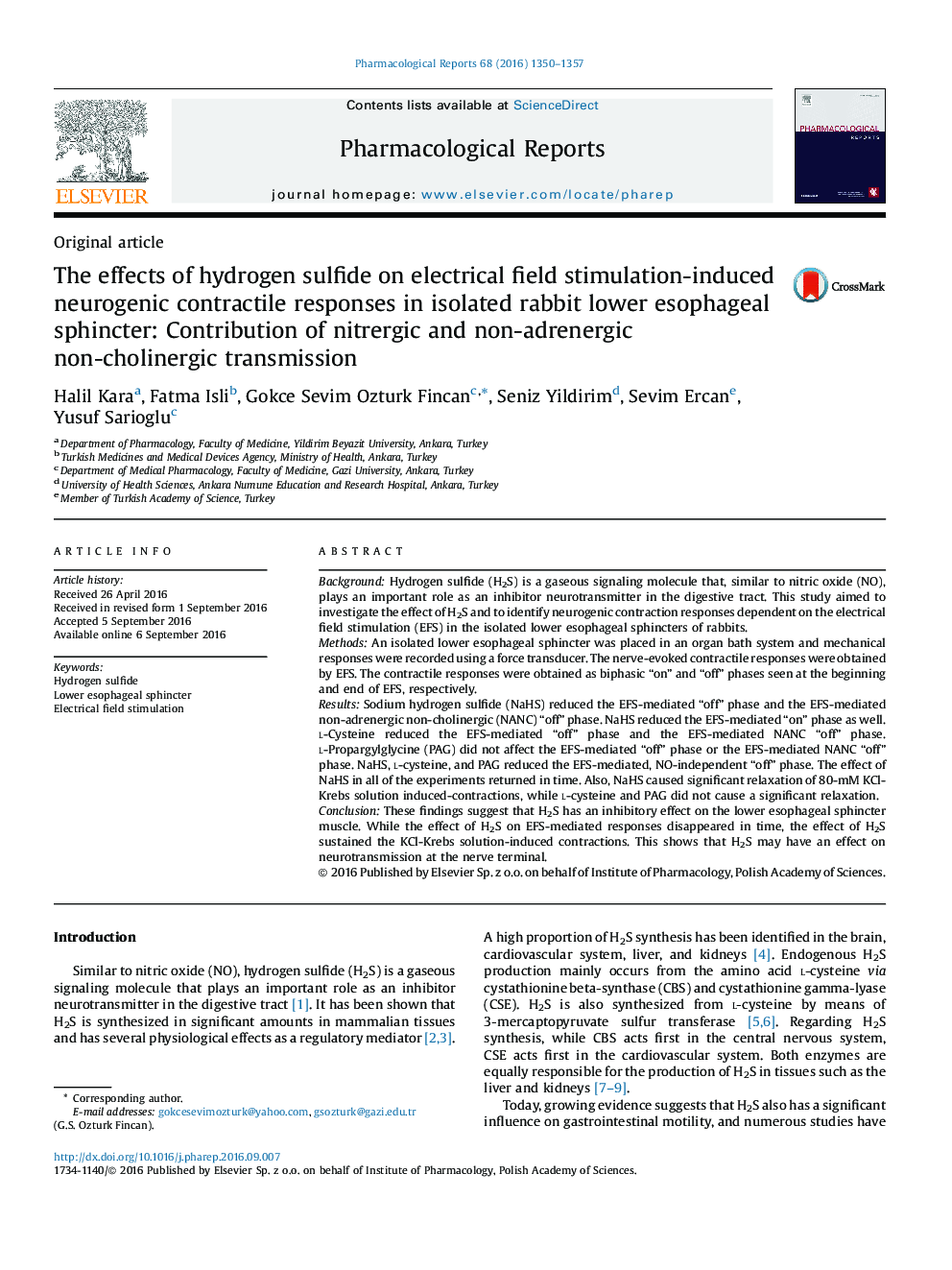| Article ID | Journal | Published Year | Pages | File Type |
|---|---|---|---|---|
| 6481735 | Pharmacological Reports | 2016 | 8 Pages |
BackgroundHydrogen sulfide (H2S) is a gaseous signaling molecule that, similar to nitric oxide (NO), plays an important role as an inhibitor neurotransmitter in the digestive tract. This study aimed to investigate the effect of H2S and to identify neurogenic contraction responses dependent on the electrical field stimulation (EFS) in the isolated lower esophageal sphincters of rabbits.MethodsAn isolated lower esophageal sphincter was placed in an organ bath system and mechanical responses were recorded using a force transducer. The nerve-evoked contractile responses were obtained by EFS. The contractile responses were obtained as biphasic “on” and “off” phases seen at the beginning and end of EFS, respectively.ResultsSodium hydrogen sulfide (NaHS) reduced the EFS-mediated “off” phase and the EFS-mediated non-adrenergic non-cholinergic (NANC) “off” phase. NaHS reduced the EFS-mediated “on” phase as well. l-Cysteine ââreduced the EFS-mediated “off” phase and the EFS-mediated NANC “off” phase. l-Propargylglycine (PAG) did not affect the EFS-mediated “off” phase or the EFS-mediated NANC “off” phase. NaHS, l-cysteine, and PAG reduced the EFS-mediated, NO-independent “off” phase. The effect of NaHS in all of the experiments returned in time. Also, NaHS caused significant relaxation of 80-mM KCl-Krebs solution induced-contractions, while l-cysteine ââand PAG did not cause a significant relaxation.ConclusionThese findings suggest that H2S has an inhibitory effect on the lower esophageal sphincter muscle. While the effect of H2S on EFS-mediated responses disappeared in time, the effect of H2S sustained the KCl-Krebs solution-induced contractions. This shows that H2S may have an effect on neurotransmission at the nerve terminal.
